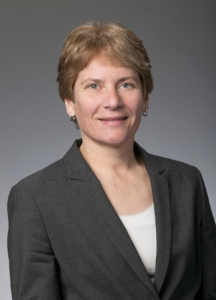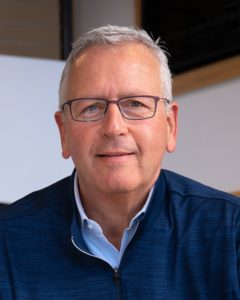
Mini-Grand Rounds: Well-being during the COVID-19 pandemic
Terry Desser, MD
Professor, Radiology
Stanford University
7:00am – 7:30am, Zoom
The Stanford Radiology Mini-Grand Round live session events are by invitation only. Invites with link to Zoom video will be sent via email to Department faculty and staff only. Recordings will be made available to the public shortly after the event.

Mini-Grand Rounds: COVID-19: Meeting the Challenge with Data Science
Tina Hernandez-Boussard, MPH, PhD
Professor, Radiology
Stanford University
7:00am – 7:30am, Zoom
The Stanford Radiology Mini-Grand Round live session events are by invitation only. Invites with link to Zoom video will be sent via email to Department faculty and staff only. Recordings will be made available to the public shortly after the event.

Mini-Grand Rounds: Aftershocks: The Coronavirus Pandemic and The New World Disorder
Colin H. Kahl
Senior Fellow at the Freeman Spogli Institute for International Studies
Steven C. Házy Senior Fellow at the Center for International Security and Cooperation
Professor, by courtesy, of Political Science
Co-director of the Center for International Security and Cooperation
7:00am – 7:30am, Zoom
The Stanford Radiology Mini-Grand Round live session events are by invitation only. Invites with link to Zoom video will be sent via email to Department faculty and staff only. Recordings will be made available to the public shortly after the event.

Mini-Grand Rounds: The short-run challenges and long-run opportunities of working from home
Nicholas Bloom, PhD
Professor (by courtesy), Economics
Senior Fellow, Stanford Institute for Economic Policy Research
7:00am – 7:30am, Zoom
The Stanford Radiology Mini-Grand Round live session events are by invitation only. Invites with link to Zoom video will be sent via email to Department faculty and staff only. Recordings will be made available to the public shortly after the event.

Radiomics and Radio-Genomics: Opportunities for Precision Medicine
Zoom: https://stanford.zoom.us/j/99904033216?pwd=U2tTdUp0YWtneTNUb1E4V2x0OTFMQT09
Pallavi Tiwari, PhD
Assistant Professor of Biomedical Engineering
Associate Member, Case Comprehensive Cancer Center
Director of Brain Image Computing Laboratory
School of Medicine | Case Western Reserve University
Abstract:
In this talk, Dr. Tiwari will focus on her lab’s recent efforts in developing radiomic (extracting computerized sub-visual features from radiologic imaging), radiogenomic (identifying radiologic features associated with molecular phenotypes), and radiopathomic (radiologic features associated with pathologic phenotypes) techniques to capture insights into the underlying tumor biology as observed on non-invasive routine imaging. She will focus on clinical applications of this work for predicting disease outcome, recurrence, progression and response to therapy specifically in the context of brain tumors. She will also discuss current efforts in developing new radiomic features for post-treatment evaluation and predicting response to chemo-radiation treatment. Dr. Tiwari will conclude with a discussion on her lab’s findings in AI + experts, in the context of a clinically challenging problem of post-treatment response assessment on routine MRI scans.

Mini-Grand Rounds: Stanford University Medical Center and COVID-19: A Chest Radiologist’s Perspective
Ann Leung, MD
Associate Chair, Clinical Affairs
Professor, Radiology
7:00am – 7:30am, Zoom
The Stanford Radiology Mini-Grand Round live session events are by invitation only. Invites with link to Zoom video will be sent via email to Department faculty and staff only. Recordings will be made available to the public shortly after the event.

Mini-Grand Rounds: The Outlook for Radiology in the Next Phases of the Pandemic and Beyond
David Larson, MD, MBA
Vice Chair, Education and Clinical Operations
Associate Professor, Radiology
7:00am – 7:30am, Zoom
The Stanford Radiology Mini-Grand Round live session events are by invitation only. Invites with link to Zoom video will be sent via email to Department faculty and staff only. Recordings will be made available to the public shortly after the event.

Ge Wang, PhD
Clark & Crossan Endowed Chair Professor
Director of the Biomedical Imaging Center
Rensselaer Polytechnic Institute
Troy, New York
Abstract:
AI-based tomography is an important application and a new frontier of machine learning. AI, especially deep learning, has been widely used in computer vision and image analysis, which deal with existing images, improve them, and produce features. Since 2016, deep learning techniques are actively researched for tomography in the context of medicine. Tomographic reconstruction produces images of multi-dimensional structures from externally measured “encoded” data in the form of various transforms (integrals, harmonics, and so on). In this presentation, we provide a general background, highlight representative results, and discuss key issues that need to be addressed in this emerging field.
About:
AI-based X-ray Imaging System (AXIS) lab is led by Dr. Ge Wang, affiliated with the Department of Biomedical Engineering at Rensselaer Polytechnic Institute and the Center for Biotechnology and Interdisciplinary Studies in the Biomedical Imaging Center. AXIS lab focuses on innovation and translation of x-ray computed tomography, optical molecular tomography, multi-scale and multi-modality imaging, and AI/machine learning for image reconstruction and analysis, and has been continuously well funded by federal agencies and leading companies. AXIS group collaborates with Stanford, Harvard, Cornell, MSK, UTSW, Yale, GE, Hologic, and others, to develop theories, methods, software, systems, applications, and workflows.

MIPS Seminar Series: Translational Opportunities in Glycoscience
Carolyn Bertozzi, PhD
Director, ChEM-H
Anne T. and Robert M. Bass Professor in the School of Humanities and Sciences
Professor, by courtesy, of Chemical and Systems Biology
Stanford University
Location: Zoom
Webinar URL: . https://stanford.zoom.us/j/94010708043
Dial: US: +1 650 724 9799 or +1 833 302 1536 (Toll Free)
Webinar ID: 940 1070 8043
Passcode: 659236
12:00pm – 12:45pm Seminar & Discussion
RSVP Here
ABSTRACT
Cell surface glycans constitute a rich biomolecular dataset that drives both normal and pathological processes. Their “readers” are glycan-binding receptors that can engage in cell-cell interactions and cell signaling. Our research focuses on mechanistic studies of glycan/receptor biology and applications of this knowledge to new therapeutic strategies. Our recent efforts center on pathogenic glycans in the tumor microenvironment and new therapeutic modalities based on the concept of targeted degradation.
ABOUT
Carolyn Bertozzi is the Baker Family Director of Stanford ChEM-H and the Anne T. and Robert M. Bass Professor of Humanities and Sciences in the Department of Chemistry at Stanford University. She is also an Investigator of the Howard Hughes Medical Institute. Her research focuses on profiling changes in cell surface glycosylation associated with cancer, inflammation and infection, and exploiting this information for development of diagnostic and therapeutic approaches, most recently in the area of immuno-oncology. She is an elected member of the National Academy of Medicine, the National Academy of Sciences, and the American Academy of Arts and Sciences. She also has been awarded the Lemelson-MIT Prize, a MacArthur Foundation Fellowship, the Chemistry for the Future Solvay Prize, among many others.
Hosted by: Katherine Ferrara, PhD
Sponsored by: Molecular Imaging Program at Stanford & the Department of Radiology

MIPS Seminar Series: “Convergent, translational research to improve human health”
Joseph M. DeSimone, PhD
Sanjiv Sam Gambhir Professor of Translational Medicine and Chemical Engineering
Departments of Radiology and Chemical Engineering
Graduate School of Business (by Courtesy)
Stanford University
Location: Zoom
Webinar URL: https://stanford.zoom.us/s/98460805010
Dial: +1 650 724 9799 or +1 833 302 1536
Webinar ID: 984 6080 5010
Passcode: 809226
12:00pm – 12:45pm Seminar & Discussion
RSVP Here
ABSTRACT
In many ways, manufacturing processes define what’s possible in society. Central to our interests in the DeSimone laboratory are opportunities to make things using cutting-edge fabrication technologies that can improve human health. This lecture will describe advances in nano- / micro-fabrication and 3D printing technologies that we have made and employed toward this end. Using novel perfluoropolyether materials synthesized in our lab in 2004, we invented the Particle Replication in Non-wetting Templates (PRINT) technology, a high-resolution imprint lithography-based process to fabricate nano- and micro-particles with precise and independent control over particle parameters (e.g. size, shape, modulus, composition, charge, surface chemistry). PRINT brought the precision and uniformity associated with computer industry manufacturing technologies to medicine, resulting in the launch of Liquidia Technologies (NASDAQ: LQDA) and opening new research paths, including to elucidate the influence of specific particle parameters in biological systems (Proc. Natl. Acad. Sci. USA 2008), and to reveal insights to inform the design of vaccines (J. Control. Release 2018), targeted therapeutics (Nano Letters 2015), and even synthetic blood (PNAS 2011). In 2015, we reported the invention of the Continuous Liquid Interface Production (CLIP) 3D printing technology (Science 2015), which overcame major fundamental limitations in polymer 3D printing—slowness, a very limited range of materials, and an inability to create parts with the mechanical and thermal properties needed for widespread, durable utility. By rethinking the physics and chemistry of 3D printing, we created CLIP to eliminate layer-by-layer fabrication altogether. A rapid, continuous process, CLIP generates production-grade parts and is now transforming how products are manufactured in industries including automotive, footwear, and medicine. For example, to help address shortages, CLIP recently enabled a new nasopharyngeal swab for COVID-19 diagnostic testing to go from concept to market in just 20 days, followed by a 400-patient clinical trial at Stanford. Academic laboratories are also using CLIP to pursue new medical device possibilities, including geometrically complex IVRs to optimize drug delivery and implantable chemotherapy absorbers to limit toxic side effects. Vast opportunities exist to use CLIP to pursue next-generation medical devices and prostheses. Moreover, CLIP can improve current approaches; for example, the fabrication of an iontophoretic device we invented several years ago (Sci. Transl. Med. 2015) to drive chemotherapeutics directly into hard-to-reach solid tumors is now being optimized for clinical trials with CLIP. New design opportunities also exist in early detection, for example to improve specimen collection, device performance (e.g. microfluidics, cell sorting, supporting growth and studies with human organoids), and imaging (e.g. PET detectors, ultrasound transducers). Here at Stanford, we are pursuing new 3D printing advances, including software treatment planning for digital therapeutic devices in pediatric medicine, as well as the design of a high-resolution printer capable of single-digit micron resolution to advance microneedle designs as a potent delivery platform for vaccines. The impact of our work on human health ultimately relies on our ability to enable a convergent research program to take shape that allows for new connections to be made among traditionally disparate disciplines and concepts, and to ensure that we maintain a consistent focus on the translational potential of our discoveries and advances.
ABOUT
Joseph M. DeSimone is the Sanjiv Sam Gambhir Professor of Translational Medicine and Chemical Engineering at Stanford University. He holds appointments in the Departments of Radiology and Chemical Engineering with a courtesy appointment in Stanford’s Graduate School of Business. Previously, DeSimone was a professor of chemistry at the University of North Carolina at Chapel Hill and of chemical engineering at North Carolina State University. He is also Co-founder, Board Chair, and former CEO (2014 – 2019) of the additive manufacturing company, Carbon.
DeSimone is responsible for numerous breakthroughs in his career in areas including green chemistry, medical devices, nanomedicine, and 3D printing, also co-founding several companies based on his research. He has published over 350 scientific articles and is a named inventor on over 200 issued patents. Additionally, he has mentored 80 students through Ph.D. completion in his career, half of whom are women and members of underrepresented groups in STEM. In 2016 DeSimone was recognized by President Barack Obama with the National Medal of Technology and Innovation, the highest U.S. honor for achievement and leadership in advancing technological progress. He is also one of only 25 individuals elected to all three branches of the U.S. National Academies (Sciences, Medicine, Engineering). DeSimone received his B.S. in Chemistry in 1986 from Ursinus College and his Ph.D. in Chemistry in 1990 from Virginia Tech.
Hosted by: Katherine Ferrara, PhD
Sponsored by: Molecular Imaging Program at Stanford & the Department of Radiology